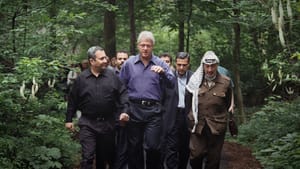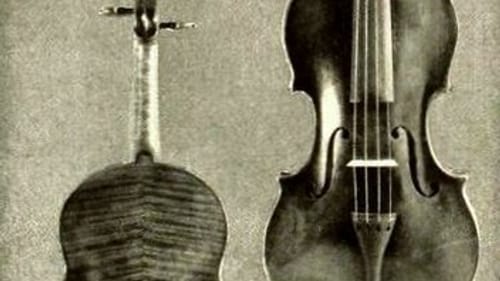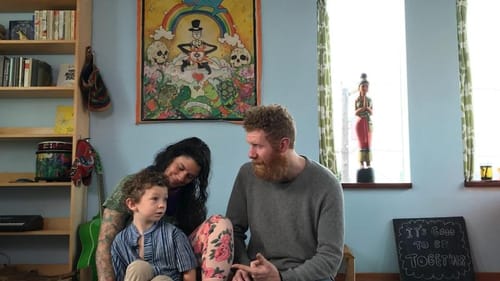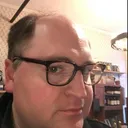Stay in the Loop
BSR publishes on a weekly schedule, with an email newsletter every Wednesday and Thursday morning. There’s no paywall, and subscribing is always free.
The best documentaries of PFF 2019
The 2019 Philadelphia Film Festival presents ‘Plucked,’ ‘The Human Factor,’ and ‘Waldo on Weed.’

The 28th annual Philadelphia Film Festival, which wrapped up October 27, featured more than 100 films, including more than a dozen documentaries. Here’s my look at three of the more intriguing ones: Joel Van Haren’s Plucked, Dror Moreh’s The Human Factor, and Tommy Avallone’s Waldo on Weed.
Plucked
Some of the best documentaries end up far afield of the originally intended story. Think Capturing the Friedmans, which began as a look at New York City birthday-party clowns, or Icarus, which began life as a comedian's quest to win a bike race. Flexible documentarians stretch beyond their comfort zone and often come up with something more interesting than what they first plotted.
That's also the case with Plucked. Documentarian Joel Van Haren was working on a film about Milwaukee Symphony Orchestra concertmaster Frank Almond, a celebrity orchestra leader who could be called the Yannick Nézet-Séguin of the Upper Midwest.
Almond, however, reached a very different level of fame in 2014. That's when the Lipinski Stradivarius, a nearly 300-year-old violin worth millions of dollars, was stolen from the concertmaster in the parking lot after a performance, when an unknown assailant tased him and grabbed the instrument.
Van Haren's documentary pivoted to cover the ensuing hunt. Police and the FBI feared the instrument had been transported out of the country by international smugglers. But in fact, the violin never left Milwaukee: the theft was a harebrained scheme executed by a local ex-con.
The director got on-camera interviews with both the thief and his accomplice, who was named Universal Knowledge Allah (which the media had a great deal of fun with at the time). Both of the convicted men, in fact, are rather philosophical about the life circumstances leading to their participation in the crime.
Indeed, attitudes about crime, punishment, and mass incarceration have changed to such a degree that the film could have taken a very different tack if it had been made only a couple of years earlier.

Throughout, the film also raises the question of why, in a city with skyrocketing crime rates and even several children dead due to gun violence during this general time frame, such significant law-enforcement resources were used to recover an inanimate object. Homicide detectives worked the case, and we even see the suspects' interrogations, which the filmmaker obtained through an open records request.
Even more than classical music, Plucked is about the fascinating dichotomy of a city much like Philadelphia and many other places, where there are both elite cultural institutions and vast swaths of deep hopelessness.
The Human Factor
The Israeli/Palestinian conflict may have been more examined over the years than any other topic on Earth, but leave it to The Human Factor to look at it with a new, fascinating lens.
Israeli director Dror Moreh looks back at the promising but ultimately failed peace process between Israel and the Palestinians, from the Madrid conference in 1992 through the death of Yassir Arafat in 2004. The film tells the story through archival footage, photographs, and interviews featuring Clinton-era American negotiators Dennis Ross, Martin Indyk, Aaron David Miller, and Gamal Helal.
Moreh is best-known for 2012’s Oscar-nominated The Gatekeepers, in which several former heads of Shin Bet, Israel's security service, railed against the hawkish turn their country had taken. His new film is another one about men filled with regret over having come close to peace, but fallen heartbreakingly short.
What's fascinating is the expertise and nuance on display in diplomacy, one-to-one relationships, and other little things that come up in these international negotiations. We get great stories, like the day Yassir Arafat refused to wear a suit instead of a military uniform to a White House ceremony, or the time the negotiators walked in on Arafat and his team watching Golden Girls re-runs on TV.
Most people looking at any project about Israel/Palestine will look for bias in one direction or another, but this film isn't easy to classify. Just about everyone involved comes in for criticism for their mistakes, including Clinton, Arafat, various Israeli prime ministers, and even the interviewees themselves. Only Yitzhak Rabin, the former Israeli prime minister, is lauded by all, with the discussion of his 1995 assassination leading several of the subjects to tears.
No, there are no Palestinian interviewees. And the American negotiators, most of whom are liberal Zionist American Jews, admit that they didn't quite approach the negotiations with evenhandedness.
Last year’s The Oslo Diaries covered the same topic, but The Human Factor is a much more effective documentary. Its more specific focus also takes the story further chronologically (Oslo Diaries, which mostly interviewed Israeli and Palestinian negotiators, ended with Benjamin Netanyahu's first election in 1996; this film continues through the failed 2000 Camp David summit.)
In addition to the lost hope for peace, The Human Factor harkens back to a time when a two-state solution, as well as a peacenik movement in Israel, were still viable things.

Waldo on Weed
Waldo on Weed is an uncommonly sweet documentary about a uniquely Philly character and his very special son.
Directed by South Jersey native Tommy Avallone, who made last year's The Bill Murray Stories, Waldo on Weed focuses on the family of Brian James Dwyer, founder of Fishtown pizza parlor Pizza Brain, his wife Danielle, and their son Waldo. The director assembles the film from years of interviews and home video, in which Dwyer's signature bright-red hair changes shapes and configurations many times.
In 2014, when he was only six months old, Waldo was diagnosed with eye cancer. Faced with this unspeakable ordeal, the Dwyers decided to supplement Waldo's chemotherapy with cannabis-based derivative (CBD) oil, which they believe eased his healing.
This was five years ago, when CBD remained illegal in most of the country. Most people outside a small subculture had never even heard of it, and the idea of a baby ingesting cannabis would have given the average person pause, even if the oil lacked the properties that get users high.
In that intervening time, we see the Dwyers fighting with their family members over the treatment, advocating for decriminalization, and eventually leaving Philadelphia for life in the Pacific Northwest. Waldo, five years later, remains alive and well, and the family, multiple times throughout, credits CBD with saving his life.
CBD is now legal in Pennsylvania, and you can get it just about everywhere. The jury is very much still out on the medical benefits of CBD oil, and it’s important to note that the Dwyers did not treat their son with CBD instead of chemotherapy, but rather in addition to it.
I’m something of a skeptic of alternative medicine. But then again, if one of my children got cancer and was in unbearable pain, I would probably take extraordinary measures to help. Waldo on Weed is the moving story of a family that did just that.
What, When, Where
Plucked. Directed by Joel Van Haren. Release date to be determined.
The Human Factor. Directed by Dror Moreh. Release date to be determined.
Waldo on Weed. Directed by Tommy Avallone. Release date to be determined.
The Philadelphia Film Festival. October 17-27, 2019 at the Philadelphia Film Center, 1412 Chestnut Street, Philadelphia. (267) 239-2941 or filmadelphia.org/festival.
The Philadelphia Film Center is a wheelchair-accessible venue. Visit online for more info.
Sign up for our newsletter
All of the week's new articles, all in one place. Sign up for the free weekly BSR newsletters, and don't miss a conversation.

 Stephen Silver
Stephen Silver